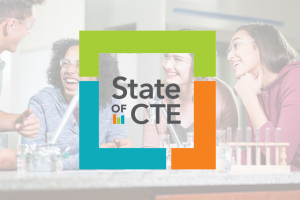This week lawmakers reconvened following a spring recess period to address a number of pressing issues. In addition, lawmakers in the House advanced legislation to reauthorize federal workforce development legislation while the U.S. Secretary of Education Miguel Cardona testified before lawmakers regarding the Biden administration’s most recent budget request for the upcoming fiscal year.
Secretary Cardona Testifies on FY25 Budget Request
 This week the House Appropriations Subcommittee for Labor, Health and Human Services, and Education (Labor-HHS-ED)—the entity responsible for determining funding for the Carl D. Perkins Career and Technical Education Act (Perkins V) and other critical education and workforce development legislation—held a hearing to examine the Biden administration’s federal fiscal year 2025 (FY25) budget request for the U.S. Department of Education (ED).
This week the House Appropriations Subcommittee for Labor, Health and Human Services, and Education (Labor-HHS-ED)—the entity responsible for determining funding for the Carl D. Perkins Career and Technical Education Act (Perkins V) and other critical education and workforce development legislation—held a hearing to examine the Biden administration’s federal fiscal year 2025 (FY25) budget request for the U.S. Department of Education (ED).
The hearing featured testimony from U.S. Secretary of Education Miguel Cardona who focused his remarks on the broad aims of ED’s FY25 budget request. Lawmakers discussed a broad array of topics at the hearing, including forthcoming Title IX regulations that are expected to be released by ED later this year and ongoing efforts to enforce civil rights protections for students. Lawmakers discussed other elements of the FY25 ED budget, including proposed increases in funding for newly proposed programs contained in the budget request. An archived webcast of the hearing, including testimony, can be accessed here.
House Republicans Elect Rep. Cole to Lead Appropriations Committee
Current House Appropriations Committee Chair Kay Granger (R-TX) announced last month that she planned to step down from this leadership role. Since then, longtime House Appropriations leader Representative Tom Cole (R-OK) was heavily favored to succeed Granger in this critical post. This week, the House Republican Steering Committee met and recommended Cole for this role and the full House Republican conference voted to ratify him as chairman. The move is expected to likely shift additional appropriations leaders on the committee in the future. In addition, Cole has stepped down as Chair of the House Rules Committee, with Rep. Burgess (R-TX) set to succeed him on this important committee.
House Passes WIOA Reauthorization Proposal
Earlier this week lawmakers in the House formally considered H.R. 6655—legislation that would reauthorize the Workforce Innovation and Opportunity Act (WIOA). Advance CTE and partners provided feedback on this proposal but did not endorse the legislation when it was passed by the House Education and Workforce Committee late last year. Lawmakers considered the legislation under suspension of the rules, meaning there was limited time for debate or wider efforts to dramatically change the legislation following its advancement last December. House lawmakers ultimately passed the legislation on a wide bipartisan margin, 378-26.
 Despite the passage of this legislation, the future for H.R. 6655 remains uncertain. Senate leaders on the Health, Education, Labor, and Pensions (HELP) Committee, including Chair Sanders (D-VT) and Ranking Member Cassidy (R-LA), are currently working to negotiate a separate legislative proposal to reauthorize WIOA potentially later this spring. As these efforts continue to take shape, Advance CTE will continue to advocate for the organization’s WIOA recommendations to improve future federal workforce development legislation as it continues through the wider legislative process.
Despite the passage of this legislation, the future for H.R. 6655 remains uncertain. Senate leaders on the Health, Education, Labor, and Pensions (HELP) Committee, including Chair Sanders (D-VT) and Ranking Member Cassidy (R-LA), are currently working to negotiate a separate legislative proposal to reauthorize WIOA potentially later this spring. As these efforts continue to take shape, Advance CTE will continue to advocate for the organization’s WIOA recommendations to improve future federal workforce development legislation as it continues through the wider legislative process.


 This week, appropriations leaders continued negotiations on federal fiscal year 2024 (FY24) funding for the U.S. Department of Education and other agencies. As
This week, appropriations leaders continued negotiations on federal fiscal year 2024 (FY24) funding for the U.S. Department of Education and other agencies. As 
